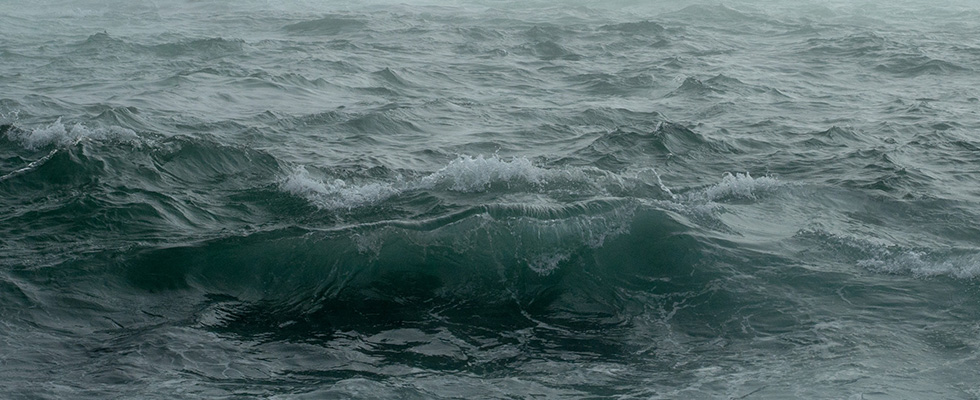Jonah rebelled against God’s clear command to go to Nineveh, and instead took off to Tarshish in a ship. But you cannot hide from God, and God sends a great storm which eventually leads to Jonah’s being tossed overboard, and spending three days in the belly of a great fish or whale. This has caused a lot of controversy. Many whales cannot swallow an orange, let alone a man, although sperm whales are the exception. One hears all sorts of stories – C. F. Keil tells of a whole horse (dead, admittedly) being found in a shark, and also of a sailor in 1758 who fell overboard into the Mediterranean Sea, and was swallowed by a huge sea-dog (a Rhineodon, a shark which thankfully lacks fearsome teeth), but recovered unhurt when the captain fired a cannon-ball at the shark so that it immediately vomited up the sailor. He was alive and well, but I daresay had quite a story to tell his grandchildren.
James Montgomery Boice repeats the story of James Bartley who was supposed to have had quite an adventure on and off the whaling ship Star of the East near the Falkland Islands in 1891. One of the boats capsized and James Bartley disappeared and was presumed drowned. However, when the whale was cut up the next day Bartley was found, unconscious but alive, although demented for a few weeks and bleached for the rest of his life. The story is rather doubtful.
Rudyard Kipling took to writing decided fiction in his How the Whale Got His Throat where a swallowed mariner danced and gave his host the hiccoughs until the whale was glad to land him back on the white cliffs of Albion.
In all this, the great fish has become something of a red herring! The point is: if God created the world out of nothing, He can do any miracle He likes. It makes no sense to believe that Christ defeated death in His resurrection, but that Jonah could not survive three days in a great fish. All things are possible with God. Jonah 2 records Jonah’s prayer in the belly of the great fish. It is a strange place to pray, but Jonah for the first time in quite a while has turned back to God.
Chastening unto life
When Jonah was tossed overboard, he was as good as dead (2:1-2). He was in the grave, Sheol, the place of the dead. The sign of Jonah is to be three days ‘dead’, as it were. He describes it as the grave, the deep, and the pit (2:3, 5, 6a), and all this was God’s doing. It was the sailors who threw Jonah overboard (1:15) but it was God who hurled him into the sea (2:3). God is not the author of sin, but if God is sovereign, everything comes from Him. Jonah sees that. But as Betsie ten Boom testified of God in the Nazi labour camp: ‘there is no pit so deep that He is not deeper still’.
In the depths of suffering, a Christian often finds the depths of God. When did the prodigal son come to his senses? Not in the middle of one of his parties, but in the pig sty when everything had crashed around him (Luke 15). That is why Calvin compares the belly of the fish to a hospital. It is a kind of spiritual recuperation room for Jonah. It is all for a purpose, and that purpose is good (Ps.119:67). If God had allowed Jonah to go on his own merry way – a quiet, anonymous life in Tarshish – Jonah would have continued on the broad way that leads to destruction. So out of love for his soul, God chastened Jonah.
Listen to Joni Eareckson-Tada, writing as a quadriplegic: ‘But today as I look back, I am convinced that the whole ordeal of my paralysis was inspired by his love. I wasn’t a rat in a maze. I wasn’t the brunt of some cruel divine joke. God had reasons behind my suffering, and learning some of them has made all the difference in the world.’ God’s mercy can be severe. Jonah was as good as dead, yet he found life.
Chastening leads to a new longing for God
Back in Jonah 1, Jonah was the only one on board the ship who was not praying. It is hard to pray when you are running away from God. You feel listless, you feel that there is a barrier between you and God, and you feel like you are wasting your time (see Ps.66:18). But in Jonah 2, Jonah is praying again – he is on the way back.
‘Cast out of God’s sight’ says verse 4. How strange! That was precisely what Jonah wanted back in 1:3. But now he is changed; he wants God back again. The worst thing that can happen to us as human beings is to get what we want. Jonah wanted to flee God, and now he has found out the horrible truth of what it means to be without God.
Twice Jonah says that he looked to the temple (2:4b, 7) What does he mean? He is looking to the temple as the place where God revealed Himself, and the place where the sacrifices for sin were offered. It was there that a backsliding sinner could lose his guilt in the sacrifice of an animal offered as a substitute.
What does it mean for us? We do not look to the temple in Jerusalem, for Christ fulfils all that the old temple promised (John 2:19-21). If you cry out for God, you must come to Him through the sacrifice of Christ. It is as John Newton put it: Be Thou my shield and hiding-place,/ That, sheltered near Thy side,/ I may my fierce accuser face,/ And tell him Thou hast died. If you are feeling chastened about your relationship with God, you must approach the Father through the sacrifice of the Son.
Restored to fellowship with the God of his salvation
Jonah has finally caught up with the pagan sailors in verses 8-9! In 1:14 they had prayed to Jehovah, the God of Israel; in 2:1 Jonah prays to the God of Israel. In 1:16 they had sacrificed and made vows to Jehovah; in 2:9 Jonah resolves to do the same thing. Jonah appreciates anew that salvation is from the Lord. ‘Jesus’ comes from the word for ‘salvation’ (Matt.1:21). The sacrifices point to the forgiveness of sins, the vows point to renewed obedience. Now Jonah could sing with Frances Ridley Havergal: Take my life, and let it be/ Consecrated, Lord, to Thee (see Rom.12:1). What a long way for Jonah to get to where he should have been in the first place.
One more point needs to be made. Jesus compares His ministry to Jonah’s (Matt.12:40). Jonah was afflicted (2:2), so was Christ; Jonah was cut off from God (2:4), so was Christ; Jonah was brought up from the pit (2:6), so was Christ. Unknowingly, Jonah was pointing to Christ’s passion and the calling in of the Gentiles.




















